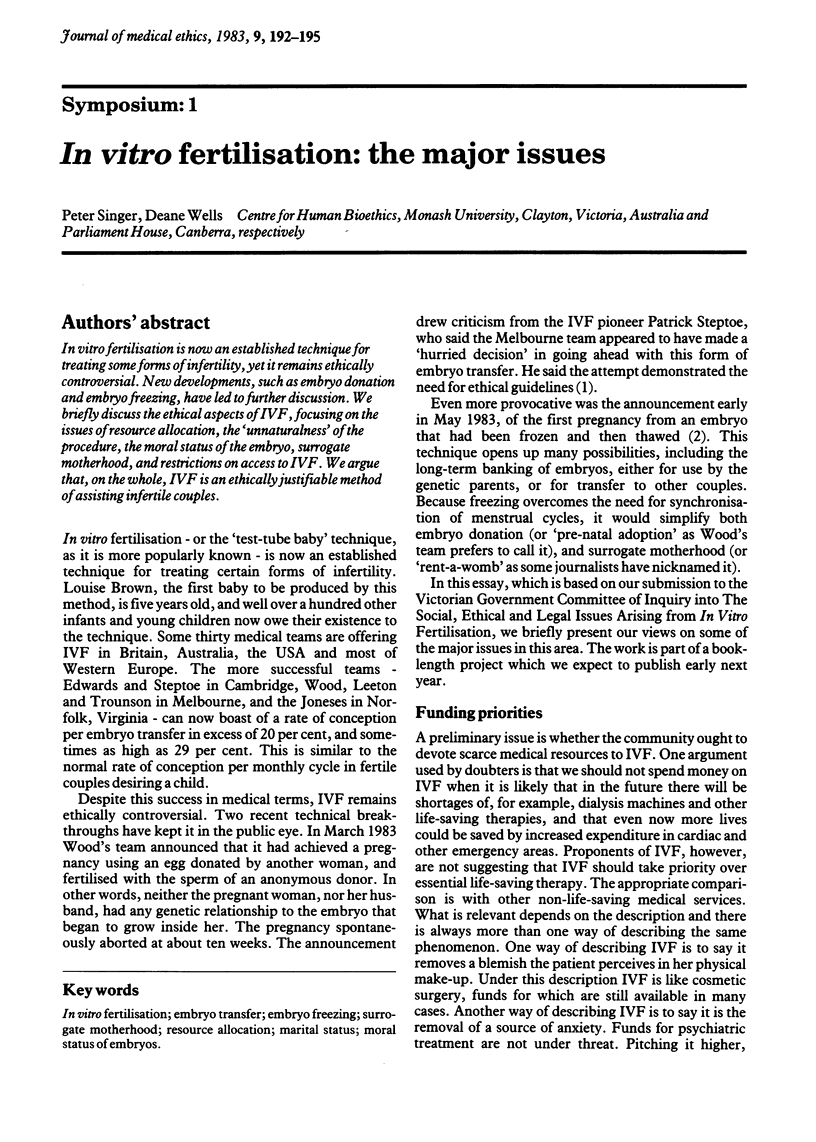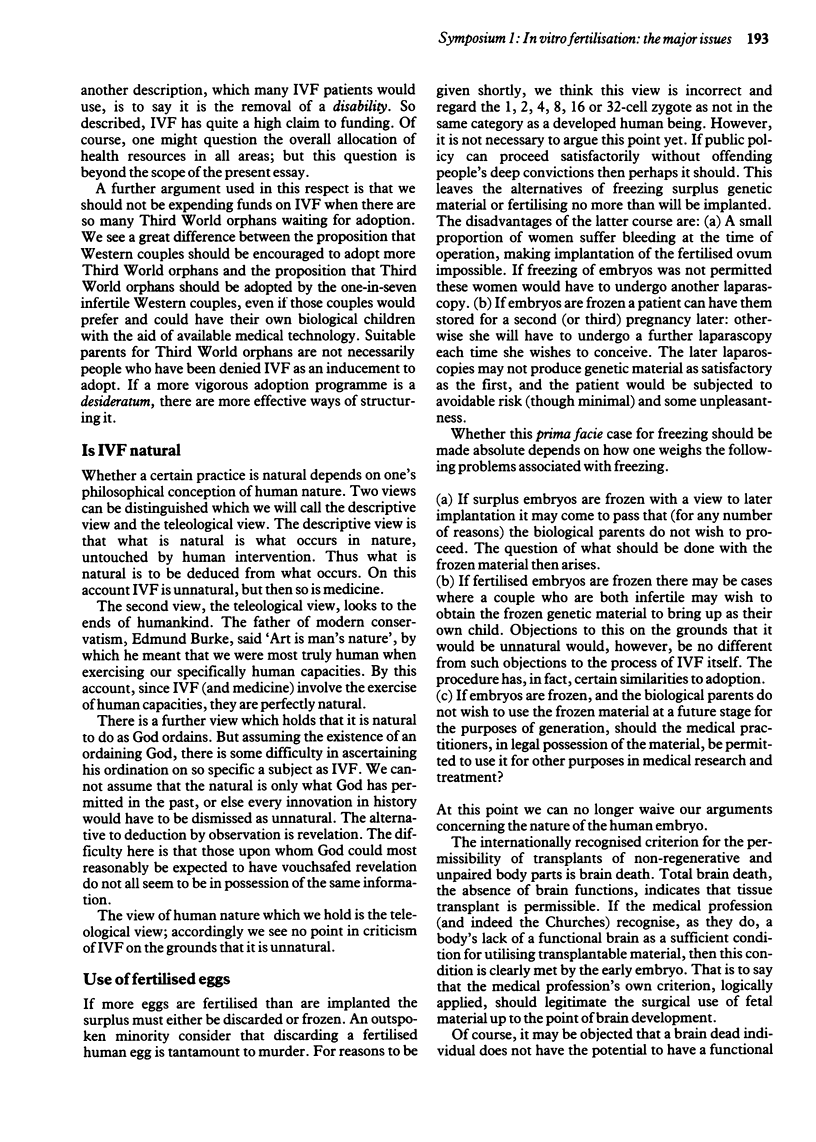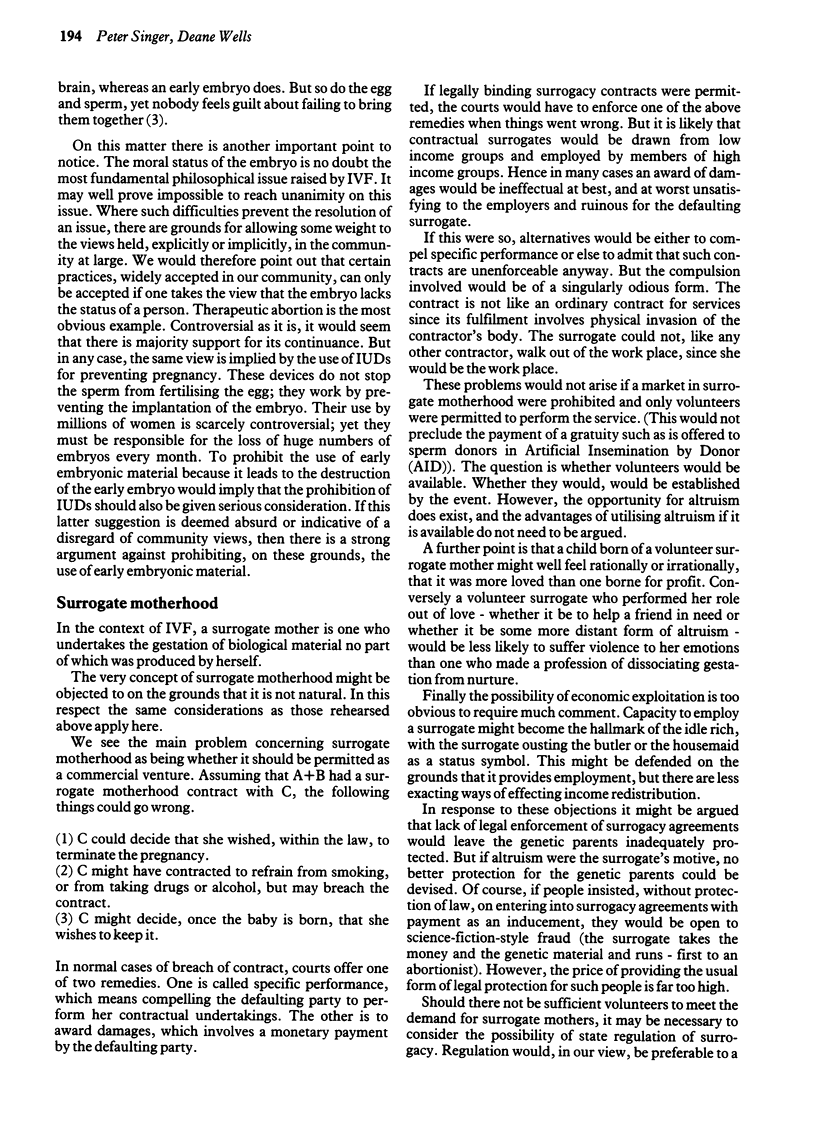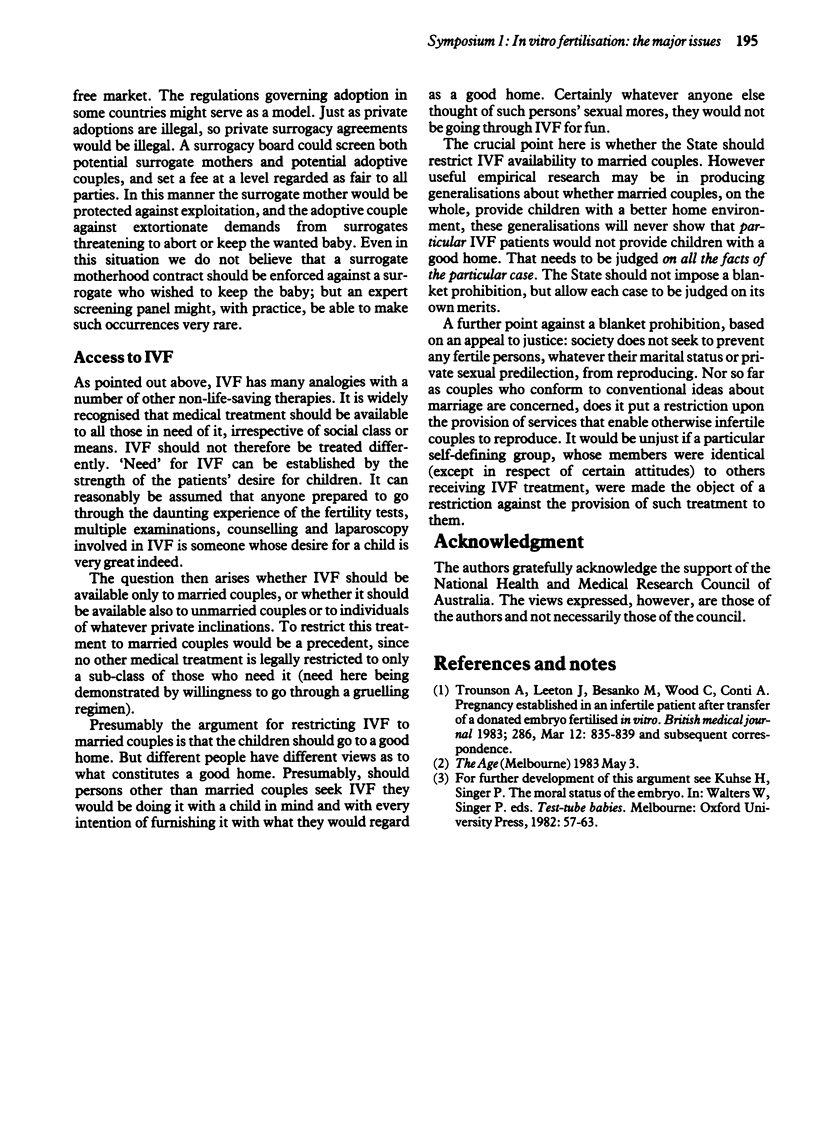Abstract
In vitro fertilisation is now an established technique for treating some forms of infertility, yet it remains ethically controversial. New developments, such as embryo donation and embryo freezing, have led to further discussion. We briefly discuss the ethical aspects of IVF, focusing on the issues of resource allocation, the 'unnaturalness' of the procedure, the moral status of the embryo, surrogate motherhood, and restrictions on access to IVF. We argue that, on the whole, IVF is an ethically justifiable method of assisting infertile couples.
Full text
PDF



Selected References
These references are in PubMed. This may not be the complete list of references from this article.
- Trounson A., Leeton J., Besanko M., Wood C., Conti A. Pregnancy established in an infertile patient after transfer of a donated embryo fertilised in vitro. Br Med J (Clin Res Ed) 1983 Mar 12;286(6368):835–838. doi: 10.1136/bmj.286.6368.835. [DOI] [PMC free article] [PubMed] [Google Scholar]


